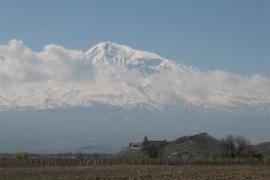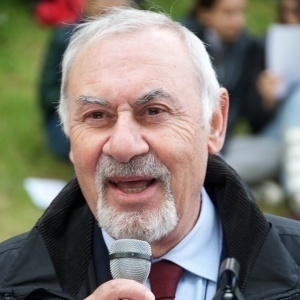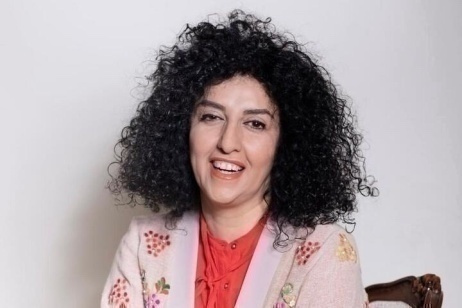
Mount Ararat
Surviving genocide and restarting life. Forgetting, not mentioning the past to our children, the "Great Evil". But this "has occurred", you can't remove its traces. The unforgettable is there and resurfaces as living memory from a generation to the following one, as noted by Gerard Chaliand in his Diary: ”The memory of my memory is not what I have experienced but what I have inherited. The echo of the past”.
It is the 98th anniverary of the Armenian genocide and every Armenian is moved to act.
Anniversaries raise questions.
How comes that a people, who has been there for over 2,500 years on a territory which is a crossroads betwen East and West, a people who has created in its homeland and colonies and in the diasporas art, music, poetry, in one word "culture", nearly one century afterwards keeps remembering so stubbornly the crime that nearly erased every trace and estinguish all voice of itself?
What is the secret of this obstination? Why not forget? Why does what occurred still burn int the Armenian souls as if it had happened yesterday?
It is true that every Armenian family in its homeland, in the Americas, Asia or Oceania has a grandfather or relative who was murdered or survived with a trauma, but this does not explain this resolve to remember.
It is no more a matter of Armenian identity, ethnic belonging, recognition of the truth in Metz Yeghern, the Great Evil. if the Turkish government admitted to have eliminated nearly an entire group on its territory, would this bring justice?
If the Turkish governmente compensated the heirs of the victims restituting the villages, homes, hospital, schools, churches, and the other institutions that were injustly taken away, would this suffice?
Hence I am asking: what does one people who has been subject to genocide really want? Justice? Recognition? Compensation?
Nothing of all this. Armenians want to understand.
Where is the origin of Evil?
The Bible tells about Cain and Abel. How are we going to read this page? How do we understand the original and mysterious intertwining of good and evil?
Franz Kafka wrote that the unexplicable landscape of ruins was still there. History tries to explain the unexplicable, he said. Since it stems from a truth foundation, though, it can nothing but end up in the unexplainable".
How do people in the world restart living after the great catastrophes of genocide cases?
Every human being can find a meaning also in defeat or ruin by exerting thought.
Every good or bad situation can provide an occasion to undertake a new road. New thoughts, new knowledge efforts, new behaviours.
On the routes of deportation, in death camps or gulags the Righteous bear witness that to every form of evil we can opposed a small piece of good which we conquer within ourselves.






